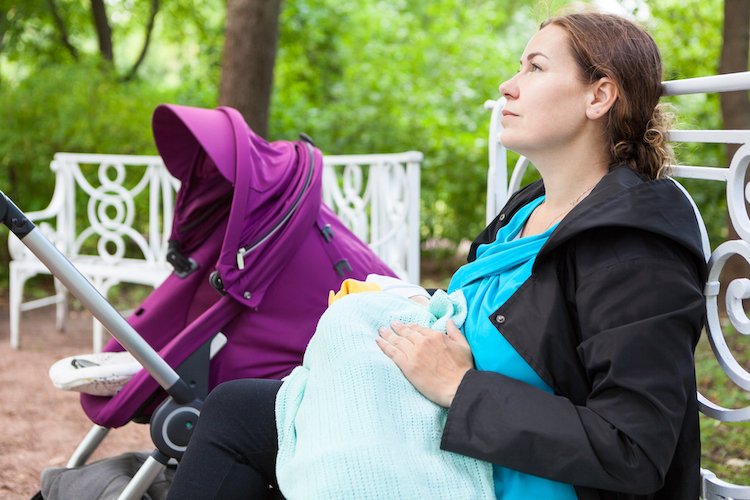Nevada breastfeeding law permits mothers to nurse their babies in any public or private location without fear of prosecution for indecent or obscene exposure. In the workplace, employers must provide nursing employees with reasonable lactation breaks to pump breast milk in a clean, private space that is separate from the bathroom.
In this article, our Las Vegas criminal defense attorneys discuss:
- 1. Can I breastfeed in public in Nevada?
- 2. Can I be arrested for breastfeeding in public?
- 3. What are Nevada’s laws for pumping in the workplace?
- 4. Are pumping breaks paid?
- 5. Can I be fired or demoted for pumping at work?
1. Can I breastfeed in public in Nevada?
Yes. Nevada breastfeeding law specifies that nursing is legal in any public or private location where people are authorized to be. Therefore, breastfeeding mothers can nurse their babies in malls, restaurants, stores, supermarkets, public transportation, hotel lobbies, elevators, office buildings, and any other location a person can lawfully be.
Note that breastfeeding in public is permitted even if the nipple of the mother’s breast is uncovered during or incidental to the breastfeeding. Breastfeeding is also legal even if people around the mother are offended or discomforted by the sight of the breastfeeding.1
Starting in 2022, Nevada courthouses will be required to have private lactation rooms for members of the public unless either:
- the courthouse does not contain a lactation room for employees;
- the courthouse does not have a room or other space that could be repurposed or privatized as a lactation room; or
- new construction would be required to provide the lactation room, and the cost of the construction is unfeasible.
The courthouse lactation room must be separate from the bathroom. It must be private and outfitted with a chair, working surface, and electrical outlet.2
2. Can I be arrested for breastfeeding in public?
Not in Nevada. Nevada’s legal definition of nudity does include bearing one’s breast, but state law explicitly says that breastfeeding does not qualify as public indecency.3
Indecent or obscene exposure
Indecent exposure (NRS 201.220) is any indecent or obscene exposure of a person’s genitalia or anus. Typical examples include flashers, streakers, or exhibitionists. The statute excludes explicitly breastfeeding:
For the purposes of this section, the breast feeding of a child by the mother of the child does not constitute an act of open and indecent or obscene exposure of her body.
Open or gross lewdness
Open or gross lewdness (NRS 201.210) comprises sexual activity done in public or where the public can see in. The statute specifically excludes breastfeeding:
For the purposes of this section, the breast feeding of a child by the mother of the child does not constitute an act of open or gross lewdness.

Breastfeeding in public continues to be a controversial issue, but the law in Nevada is clear: It is perfectly legal.
3. What are Nevada’s laws for pumping in the workplace?
With some exceptions, state law mandates that public and private employers provide reasonable break times throughout the workday for employees who are nursing mothers to pump breast milk. Employers must provide these breaks for at least one year after the child’s birth.
Employers must also offer a clean place other than a bathroom to express milk. Furthermore, this place needs to be shielded from view and free of intrusion from coworkers and the public.
If these requirements cause an undue hardship for the employer, the employer and employee can discuss potential alternatives. The employer can require the employee to accept a reasonable alternative if no agreement is reached.4
Employers who fail to provide break times and nursing areas are guilty of a misdemeanor, carrying up to 6 months in jail and/or up to $1,000 in fines. In addition, non-compliant employers are subject to a civil penalty of $5,000 per violation.5
Exceptions
Employers do not have to accommodate breast pumping laws if the employer employs less than 50 people and the accommodation would impose an undue financial hardship considering the employer’s size, financial resources, nature and structure of the business.
Also, employers who are contractors do not need to provide a pumping place other than a bathroom if the employee is performing work at a construction job site that is located more than three miles from the regular place of business of the employer.6
Finally, the Department of Corrections is not required to provide breaks for pumping or a designated non-bathroom pumping room.7
4. Are pumping breaks paid?
Employers in the state of Nevada are not required to compensate breastfeeding moms for the time they spend breast pumping unless there is a collective bargaining agreement that states otherwise.8
5. Can I be fired or demoted for pumping at work?
No. Nevada law prohibits employers from retaliating against nursing mothers who:
- take reasonable breaks to express breast milk (unless the employer is not legally required to provide breaks), or
- take any actions to enforce pumping laws, such as filing complaints with HR or the Local Government Employee-Management Relations Board9
Employees who have been discriminated against for pumping at work can file a complaint with the Nevada Equal Rights Commission (NERC). If NERC cannot resolve the issue, the employee may be able to file a civil lawsuit against the employer.
Legal References
- NRS 201.232. In 1995 the Nevada Legislature passed Senate Bill 317 which recognized that breastfeeding a baby until two years of age offers health benefits to both mother and child.
- Nevada Assembly Bill 196 (2021).
- Nevada Revised Statute 201.261; NRS 201.220; NRS 201.210; see also State v. Castaneda, (2010) 126 Nev. 478, 245 P.3d 550, 26 Nev. Adv. Rep. 45; see also Ebeling v. State, (2004) 120 Nev. 401, 91 P.3d 599, 120 Nev. Adv. Rep. 45.
- NRS 608.0193; Nevada Assembly Bill 113 (2017); State Of Nevada Nursing Mother’s Accommodation Act, Office of the Labor Commissioner (labor.nv.gov); see also NRS 613.4371; see also 29 U.S.C. § 207 (federal law).
- NRS 608.195.
- NRS 608.0193; NRS 613.438.
- NRS 613.438.
- NRS 608.0193.
- Same.

